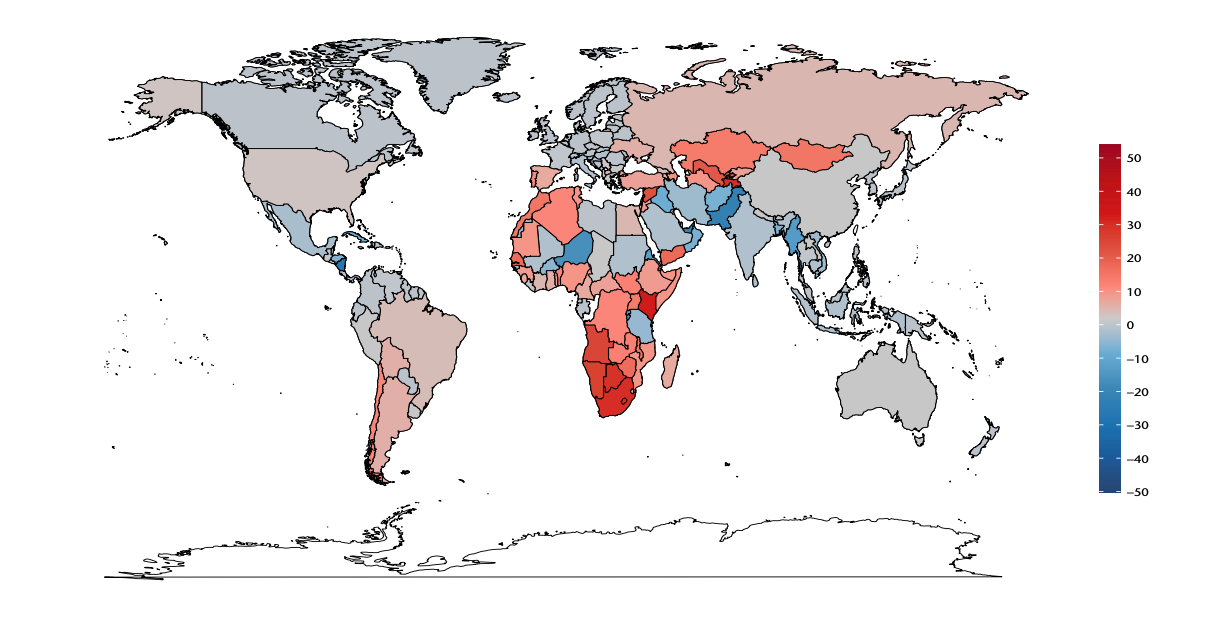Global Covid shutdown has no long-term impact on climate crisis, UN says
‘So far it’s been less a green recovery from Covid for most economies, and more a carbon-blinkered dash back towards business as usual,’ says one scientist
Global coronavirus lockdowns have failed to make a dent in the climate crisis, according to a report headed by the world’s leading meteorological agency.
Reductions in global greenhouse gas emissions appeared as a sliver of a silver lining in the bleak, early months of the Covid-19 pandemic, as international travel ground to a halt, people stayed home and industries slowed.
The findings underline the immensity of the task of reducing global emissions, as after months of lockdowns, the climate impact is negligible in the long term.
The United in Science 2021 report, published on Thursday, found that emissions reductions last year likely reduced the annual increase of long-lived greenhouse gases (GHGs). But the effect was so minimal it could not be distinguished from natural variability.
And now, fossil fuel consumption has bounced back. Concentrations of major GHGs – carbon dioxide (CO2), methane (CH4) and nitrous oxide (N2O) – continued to increase during 2020 and the first half of this year.
In his foreword to the report, coordinated by the UN’s World Meteorological Organization (WMO), Secretary-General Antonio Guterres wrote that it was “an alarming appraisal of just how far off course we are”.
The report also gave a dismal assessment of governments’ pledges for a post-Covid “green recovery” – noting there’s no sign that this has come to pass.
“So far it’s been less a ‘green recovery’ from Covid for most economies, and more a carbon-blinkered dash back towards business as usual,” Professor Dave Reay, director of Edinburgh Climate Change Institute at the University of Edinburgh, said in a statement to The Independent.
Carbon emissions from burning fossil fuels and cement peaked in 2019, before plummeting 5.6 per cent in 2020. However, in the first half of 2021, global emissions in the power and industry sectors were already at the same level, or higher, than in the same 2019 period. Emissions from road transport remained about 5 per cent lower.
GHGs continue at record levels, tracking to blow past reduction targets set by the global Paris Agreement five years ago.
On Wednesday, it was revealed that only one country – Gambia – is currently doing enough to meet the goal of limiting global heating to 1.5C above pre-industrial levels, just weeks out from the consequential Cop26 climate summit.
Since 2016, the average global temperature has been among the highest on record – and in all likelihood, the planet will temporarily breach the 1.5C threshold some time in the next five years, the report noted.

The consequences of this path are ever more painfully apparent: deadly heatwaves, large-scale wildfires and powerful storms impacting every continent.
The WMO report reiterated the statements from the Intergovernmental Panel on Climate Change (IPCC) assessment in August: that the human influence in these climate events is “unequivocal”.
The WMO report repeated that, even if drastic action is taken to slash emissions, sea levels will continue to rise, placing coastal areas and island communities under threat. And from 2021–2025, high latitudes and the Sahel region of Africa are likely to have more rainfall than in recent years.
Extreme heatwaves have led to an increase in heat-related deaths and illnesses, the WMO said. More than 103 billion potential work hours were lost around the world in 2019, compared with in 2000, due to hotter temperatures.
Covid infections and conditions linked to the climate crisis, like heatwaves, wildfires and poor air quality, also created a double whammy of risk, particularly for vulnerable populations.
A study last month in the journal Science Advances, linked wildfire smoke to at least 19,000 additional Covid cases in the US West, and 700 subsequent deaths.
The United in Science 2021 report involved the UN Environment Programme, the World Health Organization, the Global Carbon Project, and the UK Met Office, among others.
“Unless there are immediate, rapid and large-scale reductions in greenhouse gas emissions, limiting warming to 1.5C will be impossible, with catastrophic consequences for people and the planet on which we depend,” Mr Guterres wrote.
“This report is clear. Time is running out.”
Join our commenting forum
Join thought-provoking conversations, follow other Independent readers and see their replies
Comments
Bookmark popover
Removed from bookmarks